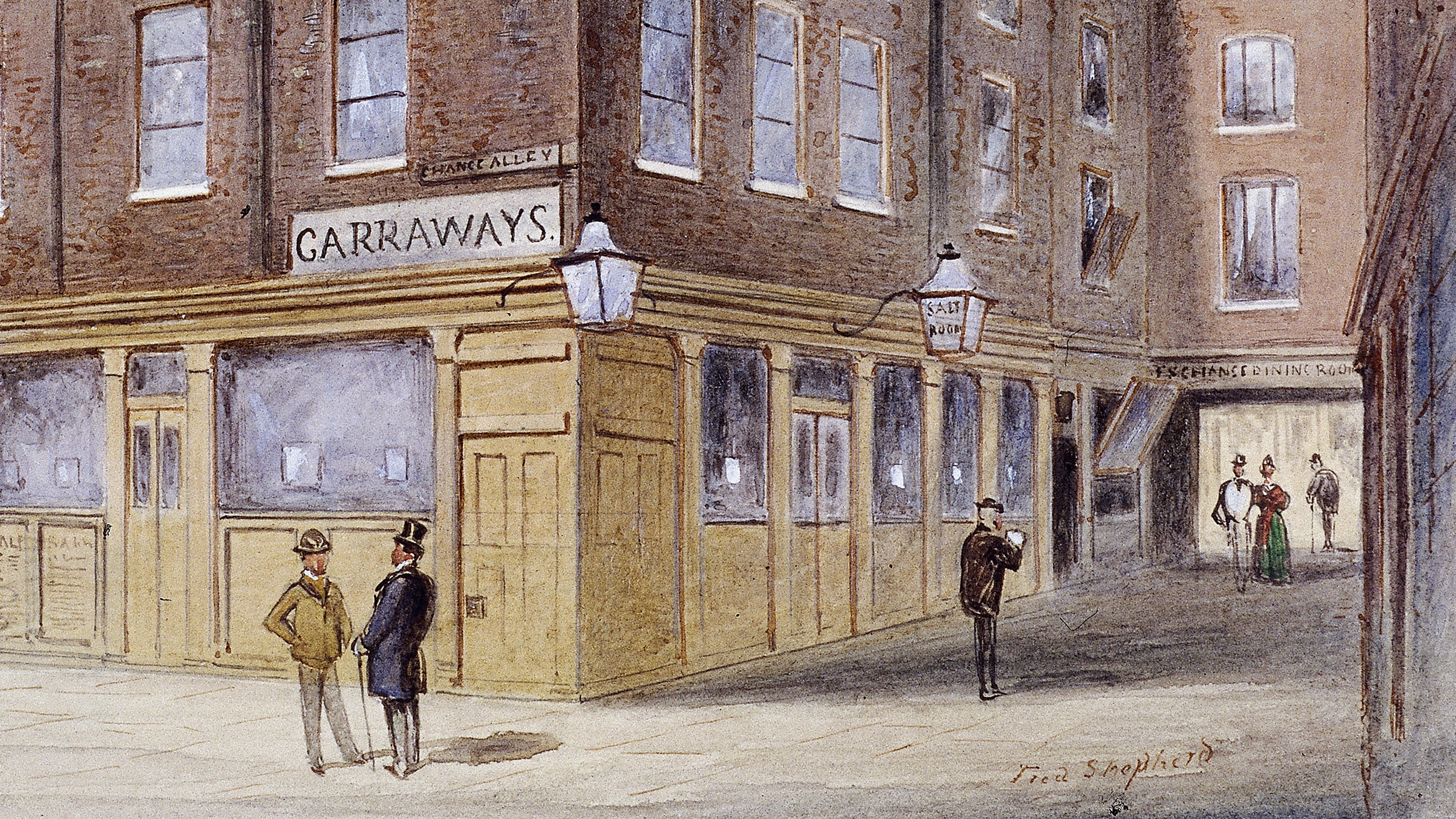“Penny Universities”: How British coffeehouses changed the intellectual world

- Coffeehouses in 17th-century Britain were called “Penny Universities,” and they were gathering places for academics, artists, and intellectuals.
- These intellectual hubs democratized learning, opening avenues for people of all backgrounds to engage in scholarly discourse — including those who could not access higher education.
- The ideas swirling around these coffeehouses helped create some of today’s major institutions, including Lloyds of London, the Royal Society, and the London Stock Exchange.
Be careful when you next go into your favorite coffee shop. Sure, you might harmlessly be looking for a pick-me-up to get through that three-hour meeting, but what else might you find? Revolution, radicalization, and deviancy. That’s not caffeine you’re tasting — it’s danger. As King Charles II put it, coffee is “the great resort of idle and disaffected persons…[and] has produced very evil and dangerous effects.” People who hang about in coffee houses are the disreputable, dodgy sort — do you really want to be seen around those types?
For hundreds of years after their introduction, coffeehouses didn’t just sell coffee. They sold ideas. If you walked into an average 17th-century coffeehouse in Britain, you’d see gathered around the table academics, authors, artists, foreign exiles, revolutionaries, and political radicals. There would be a buzz in the air — the buzz of excited and scholarly debate. These coffeehouses were not hushed places of laptops and headphones. They were forums.
These were the “Penny Universities” of early modern Britain, and within their cozy, candlelit interiors, an intellectual revolution was brewing.
Unfiltered education
If you were born in Britain in the 1600s, you would have had a slim chance of getting a good education. Wealthy families in England would pay for private tutors or send their children to one of the expensive “King’s Schools” (founded by or named after Henry VIII). Anyone who didn’t own a mansion and a title would have to be either very smart or very lucky to get into a good school. After that, no matter how brilliant you might be, your education would come to a yanking halt in adulthood. In England, there were only two universities: Oxford and Cambridge, and both charged fees far beyond most people’s annual income (not to mention the books and board you had to pay for). Higher education was reserved for higher incomes.
So, what were intelligent and academically curious people to do? Well, drink coffee. The first coffeehouse in the UK opened in Oxford in 1650 and it was crammed with dissatisfied or disillusioned academics. These Oxford coffeehouses were massively exclusive (serving only university members) but they set a precedent. These were places of erudition, debate, science, and intellectual curiosity. And, importantly, they existed outside of formal institutions.
We’ve bean thinking
Coffee and coffeehouses spread to London soon enough, and it was here that a diarist named Samuel Pepys stumbled across one of the most famous: the Rota Club. Pepys was an early convert to coffee, and while at the Rota Club he was amazed by the ‘‘admirable discourse’’ and ‘‘exceeding good arguments” he heard there. In Pepys’ London, the “virtuoso” was a type of man that devoted himself to letters and learning. They were the intelligentsia of the 17th century, and they all gathered in coffeehouses like the Rota Club.
Most importantly, these coffeehouses didn’t care about your background — so long as you were someone who liked to think. These coffeehouses welcomed patrons from all walks of life and were a rare opportunity for the many social strata of Britain to meet and debate great ideas. As one French writer put it, “What a lesson to see a lord, or two, a baronet, a shoemaker, a tailor, a wine-merchant, and a few others of the same stamp pouring over the same newspapers. Truly the coffee houses… are the seats of English liberty.”
Places like the Rota Club had a spark and energy to them that was often lacking in the rigid lecture halls of Oxford or Cambridge. If you had wit and intelligence then you could take a seat at the coffeehouses, and, in all your many caffeinated discussions, you’d find there were few ideas left unexamined. Anyone could learn, and anyone could teach, if only you could pay the price of a coffee, which, back then, was a penny. And this is why these coffeehouses came to be known as “Penny Universities.”
A whole latte ideas
Of course, not everyone thought highly of these “Penny Universities.” One 1661 pamphlet decried that there were “neither moderators, nor rules” and that they resembled “a school without a master.” These critics laughed at the indiscriminatory and meandering “learning” that took place, mocking them as “tattling universities.” Patrons would debate astronomy and then literature in the time it took to drink a coffee. In a single afternoon, they might discuss mercantilism and mathematics, then Calvinism and chemistry.
But this was the whole point of Penny Universities. It was learning without rigid parameters, thinking outside the box. And in all this frantic and exciting exchange of ideas, great things were born. Then, as now, when intelligent and passionate people put their heads together, innovation and discovery soon follow after.
In Lloyd’s Coffee House, ship captains and their backers would gather for a brew. And from their “tattling” emerged the world’s largest insurance market: Lloyds of London. Meanwhile, down at the Grecian Coffeehouse, scientists were gathering to watch two scholars dissect a dolphin on a table. Those scholars were Isaac Newton and Edmund Halley, two of many scientists from the Royal Society who frequented coffeehouses. Over at Jonathan’s Coffee House, merchants and traders were discussing economics. And despite having “neither moderators, nor rules” they managed to create the London Stock Exchange — the first of its kind and the basis of so much of the modern economy.
So, the next time you buy a coffee from your favorite coffeehouse, think about the great history that began in places just like that.





